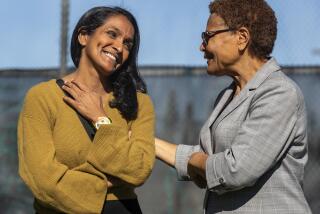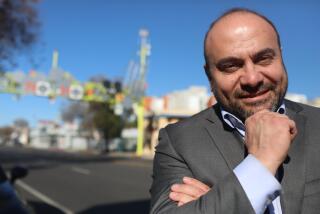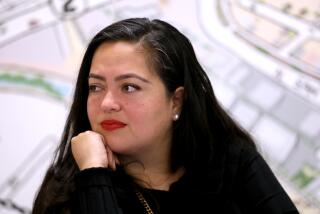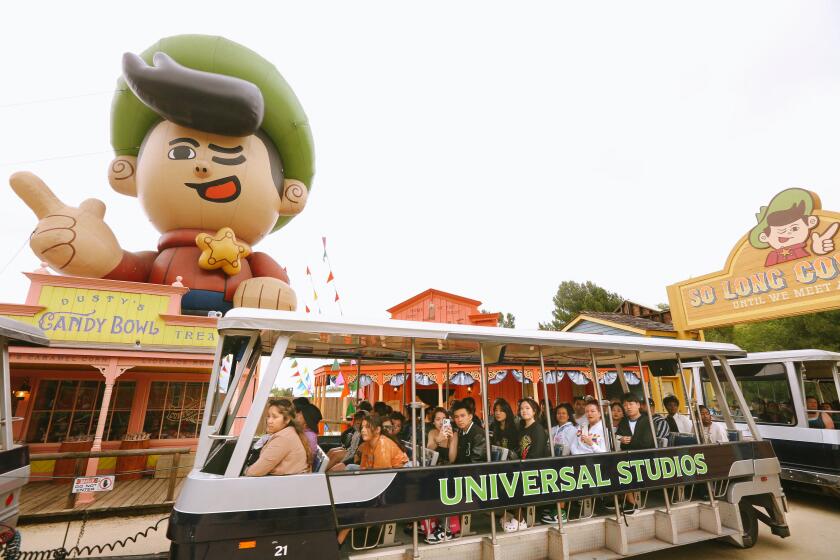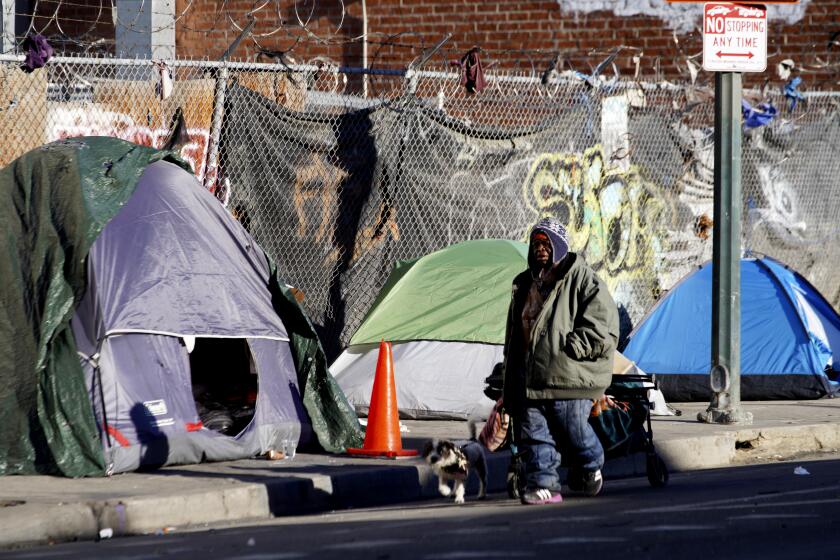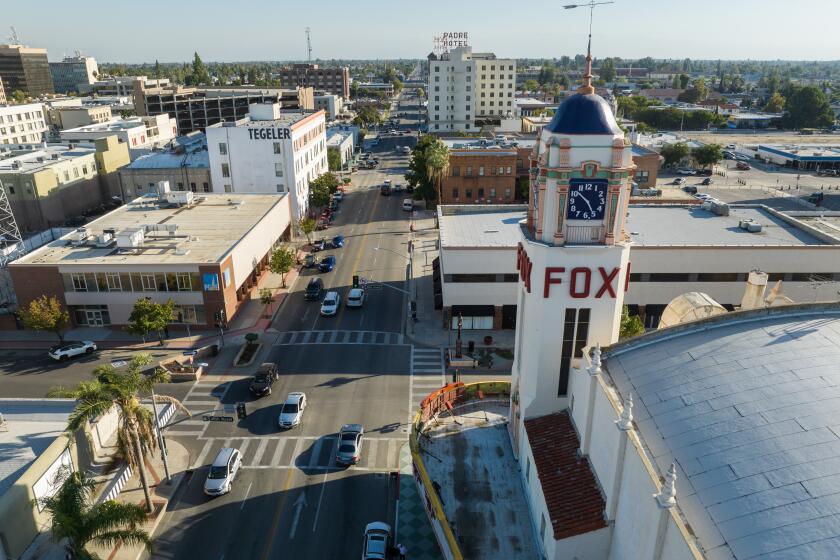Eric Garcetti’s winning strategy took Wendy Greuel strongholds
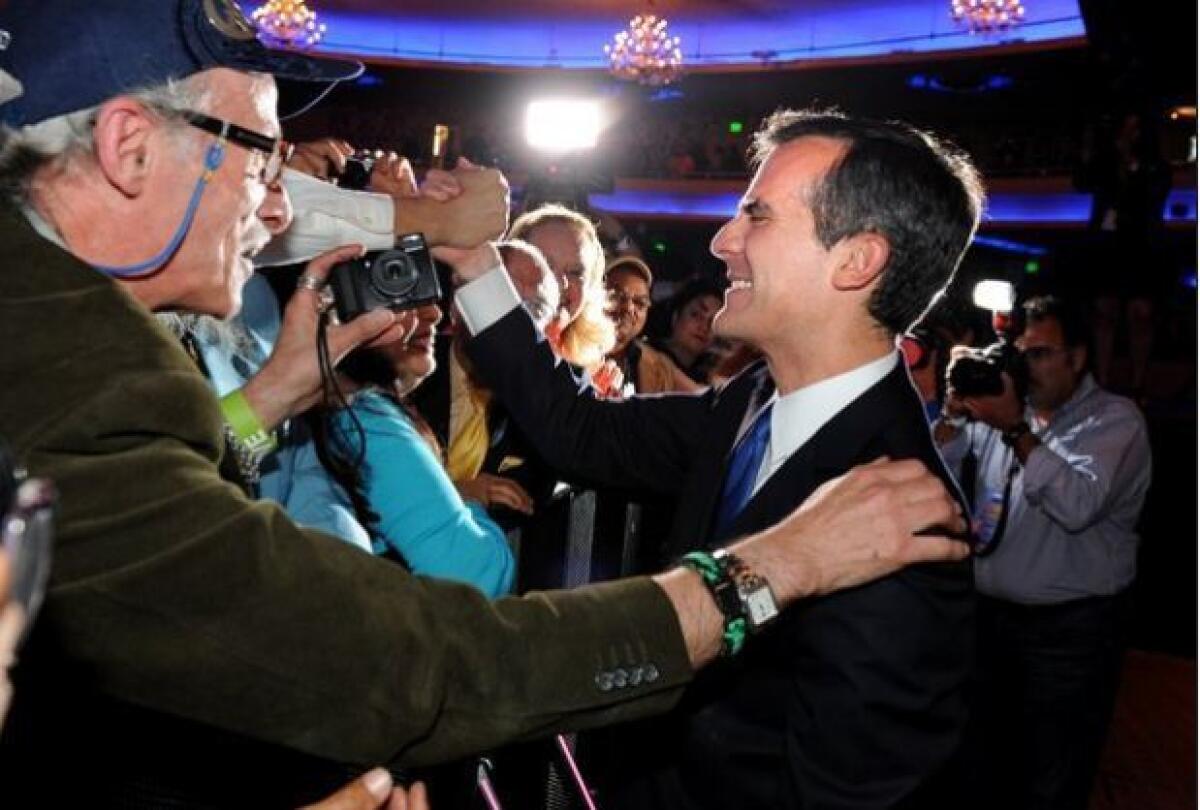
Eric Garcetti defeated Wendy Greuel in the Los Angeles mayor’s race despite Greuel’s overwhelming support in heavily African American neighborhoods.
The city controller’s strength among black voters in South L.A. was too little to make up for Garcetti’s rout across the central city, where polls showed he was heavily favored by whites and Latinos.
Garcetti won by running up huge margins across a vast stretch of the central city, from the Eastside to Pacific Palisades, while denying his rival the San Fernando Valley stronghold that was essential to her candidacy.
INTERACTIVE MAP: L.A. mayoral election results
Garcetti, a councilman from Silver Lake, won many parts of the Valley that, by all rights, were Greuel’s turf: Sherman Oaks, Woodland Hills and Northridge among them. Greuel grew up in Granada Hills and represented the Valley on the City Council for seven years.
Yet overall, she and Garcetti drew to a tie in the Valley -- a devastating setback for Greuel.
Garcetti’s blunting of Greuel in the Valley, more than anything else, enabled him to finish in a romp citywide, 54% to 46%, according to preliminary returns.
Most striking was Garcetti’s success in defeating Greuel in such Republican bastions as Porter Ranch, an area won by GOP candidate Kevin James in the March primary.
Garcetti did that largely by casting Greuel as too closely tied to the union that will soon ask the new mayor to award raises to thousands of workers at the unpopular Department of Water and Power.
The union, International Brotherhood of Electrical Workers Local 18, spent $1.65 million trying to get Greuel elected, a campaign that backfired when Garcetti made it the subject of brutal TV attack ads.
In essence, Garcetti argued that Greuel was an untrustworthy leader for a city still unable to maintain its streets and parks amid chronic budget shortfalls. That tarnished Greuel’s self-portrayal as a fiscal conservative who had uprooted waste and fraud as controller.
At the same time, Garcetti, who like Greuel has a long track record as a strongly pro-labor Democrat, used his history of backing layoffs and furloughs of city workers during the financial crisis to shed his own liberal image and solidify his gains among Republicans.
“The most liberal man in the race carried Republicans by a substantial margin,” said Bill Wardlaw, who chaired the campaigns of former mayors Richard Riordan and James K. Hahn. “To me, that can all be traced to the DWP, and the perception that was created around the DWP, and what that meant to the mayoralty.”
That was apparent not only in the Valley, but also on the Westside. There, many of the city’s most prosperous neighborhoods -- also home to many Republicans -- strongly favored Garcetti. He won close to two-thirds of the vote in Pacific Palisades, Brentwood and Bel-Air.
The center of Garcetti’s base was Silver Lake and Echo Park, where he won nearly three-quarters of the vote. Garcetti made the revitalization of those areas, Hollywood, Atwater Village and other parts of his district a key focus of his campaign.
“We did much better in her base than she did in ours,” Garcetti strategist Bill Carrick said.
In heavily Latino areas of the Eastside, Garcetti, whose ancestry is part Mexican, carried nearly every neighborhood, but by narrower margins. Greuel had tried to undercut her rival’s standing in the area by heavily promoting her endorsements by some of the region’s most prominent Latinos, including Los Angeles County Supervisor Gloria Molina.
But Garcetti played to his heritage throughout the campaign, and signaled its importance during a news conference Wednesday.
“Soy uno de vosotros,” he said: “I am one of you.”
Garcetti’s convincing win came amid dismal voter turnout. The final vote count is likely to show that Garcetti was elected with fewer votes than any new mayor of Los Angeles since 1938, when Fletcher Bowron ousted incumbent Frank Shaw in a recall at a time when the city’s population was less than half what it is now.
The city clerk’s office still has about 82,000 ballots to count over the next few weeks.
Depending on how many are deemed valid, the turnout is likely to be lower than 24% of the city’s 1.8 million registered voters. That would set the record for the lowest turnout of any mayoral runoff in the past century.
ALSO:
L.A. Now Live: Can Garcetti’s grand goals match reality?
Eric Garcetti faces tough tests when he takes office as mayor
Glendora home searched for clues in woman’s 1978 disappearance
More to Read
Start your day right
Sign up for Essential California for news, features and recommendations from the L.A. Times and beyond in your inbox six days a week.
You may occasionally receive promotional content from the Los Angeles Times.
